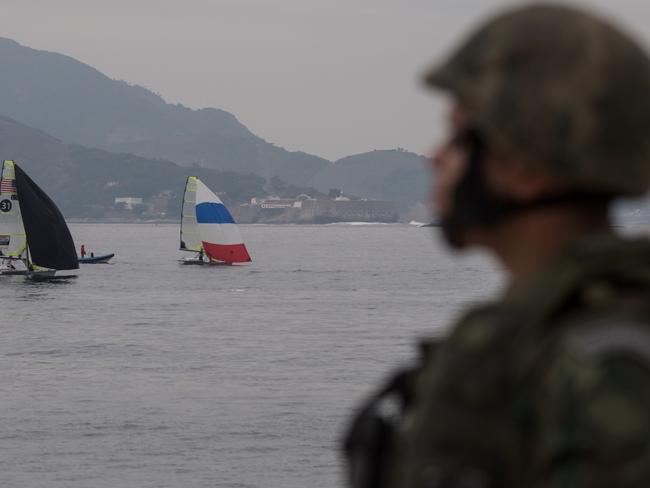Rio 2016: Olympic athletes told to ‘keep your mouth closed’ when in contaminated water
IF OLYMPIC athletes’ tolerance levels were not being pushed to the limit already, they’ve now been hit with another warning.

IF OLYMPIC athletes’ tolerance levels were not being pushed to the limit already, they’ve now been told to keep their mouths closed.
On top of concerns over substandard Olympic village accommodation, athletes have been warned that Rio’s aquatic sites remain contaminated.
Government and Olympic officials admit efforts to treat sewage and clear garbage from Guanabara Bay and the city’s beaches have been insufficient, prompting warnings from health experts.
The bay will host the sailing and windsurfing events at next month’s Olympics.

Scientists say the waters are filled with a host of pathogens and viruses with recent tests showing it is more contaminated than first thought, The New York Times reported.
One doctor told The Times that athletes will “literally be swimming in human crap”.
Paediatrician Daniel Becker also warned they were at risk of getting sick from microorganisms and toxins in the water.
Health experts have advised competitors to keep their mouths shut.
Afrodite Zegers, a member of the Dutch sailing team, has been practising in Guanabara Bay, renowned for its high levels of pollution.
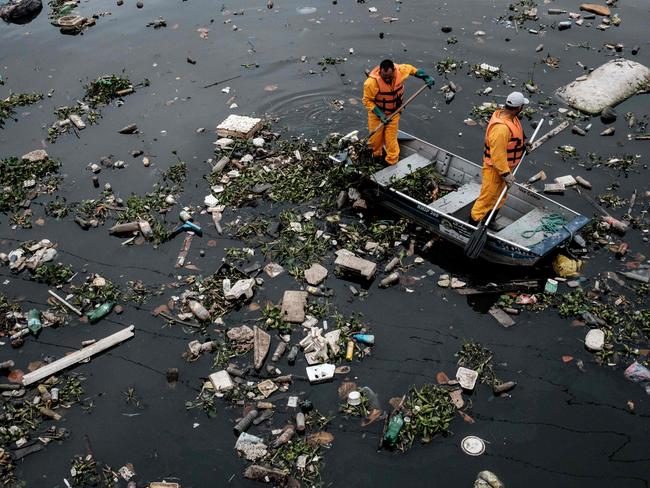
“We just have to keep our mouths closed when the water sprays up,” she told The Times.
One local revealed his disappointment that authorities weren’t able to clean up the water properly in time for the games, revealing “it smells like (expletive) because it’s full of (expletive)”.
Luiz Goldfeld told USAToday he expected something would be done about the problem when the Olympics were announced in 2009.
However according to him, little has changed in seven years with tonnes of raw sewage pumped into the bay every day.
He said the stench was often overpowering and that he had seen human waste and dead animals in the water.
However some have pointed out the events being held in the bay are actually a long way from where the worst pollution levels are.
London-based Brazilian singer-songwriter Isabel Monteiro tweeted the negativity surrounding pollution was misleading.
#Rio2016 Guanabara Bay pollution? I think the global Media is misleading you, here's why 😉 --> pic.twitter.com/kfyVEBucUu
— Gringa Brazilien (@GringaBrazilien) July 26, 2016
Authorities also claim the situation isn’t as bad as it may seem. They say strong currents in the bay mean the sailing areas are clean enough for swimming.
GARBAGE PROBLEM
The health warning follows the news last week that while garbage-free water at venues is not guaranteed at least sailing competitors can expect a “fair” tournament.
Brazilian authorities have been quick to reassure competitors that the bay, which is staging the sailing and windsurfing contests, will not be affected by massive pollution.
However concerns were raised that fast, light boats or windsurfers could run into floating garbage or even snag a plastic bag, getting slowed down or knocked out of the race.
This comes on top of concerns raised surrounding bacteria in the sewage-laden waters.
Andre Correa, the Rio state secretary for the environment, said new barriers aimed to prevent the flow of garbage into the bay and thought competitors won’t have any trouble.
“There is no bay in the world with no rubbish. Is there a chance we’ll have some problem?’ he told AFP last week.
“There is a very small chance, but it can’t be ignored. It’s not impossible. But I am very optimistic that we can guarantee a fair regatta.”
Mr Correa said the barriers, placed across 17 principal rivers, aim to stop 85 per cent of garbage running into the bay.
Regular boaters and clean-up crews on Guanabara report finding everything from dead animals to floating televisions and refrigerators, in addition to masses of plastic bottles and bags.
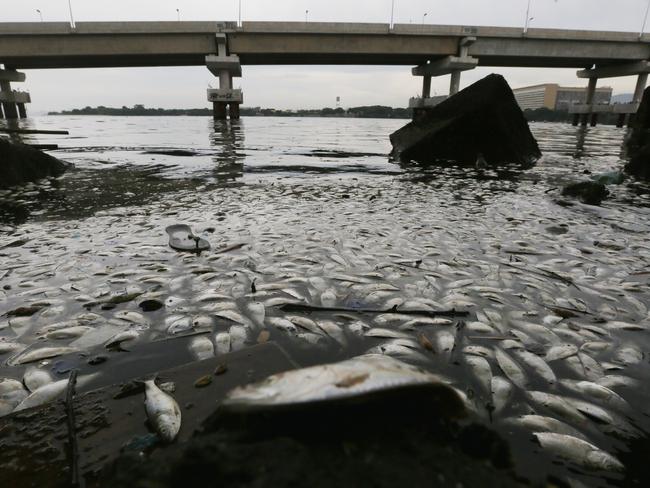
SUPER BACTERIA
While cleaning up rubbish from the waterways is easier, getting rid of toxins and bacteria remains a far bigger challenge.
An estimated half of the sewage emitted by the roughly nine million people living around Guanabara Bay is not treated.
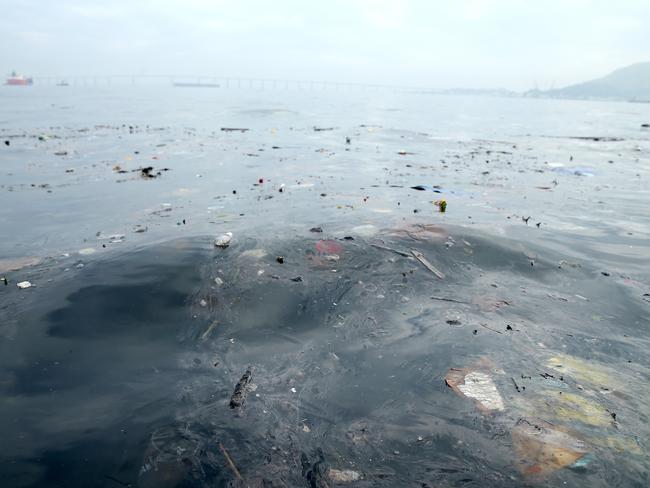
Mr Correa insisted that strong currents in the bay meant that the sailing areas were clean enough for swimming, even if other areas are filthy.
“Water quality has never been a worry of mine for the Olympics,” he said.
Only the raw sewage that until recently was gushing into the marina where the sailing boats start posed a risk, he said, and that has been addressed. “For the last month the water quality has been good,” he said.
In their winning bid to host the Olympics, Rio de Janeiro officials had promised to reduce pollution by 80 per cent.
However, earlier this month alarm bells rang after scientists found a group of drug-resistant bacteria in Rio’s waters.
Called Carbapenem-resistant Enterobacteriaceae, the bacteria can cause meningitis, pulmonary gastrointestinal urinary tract and bloodstream infections.
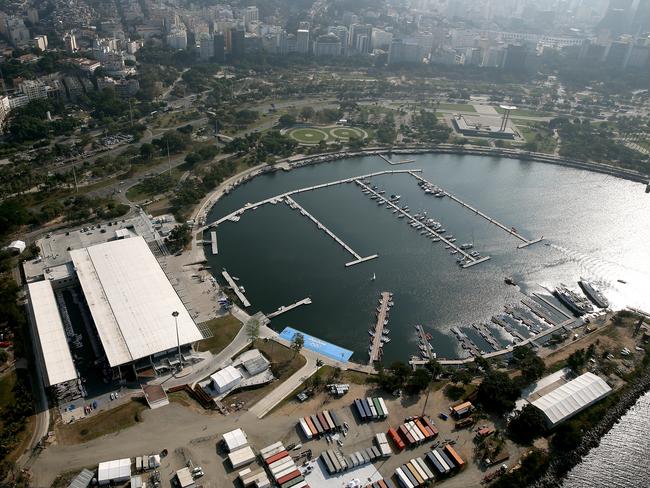
Raw sewage which is dumped into the ocean has been cited as the likely cause of the bacteria which has been detected in the city’s beaches.
Such super bacteria is a particular risk for those with compromised immune systems.
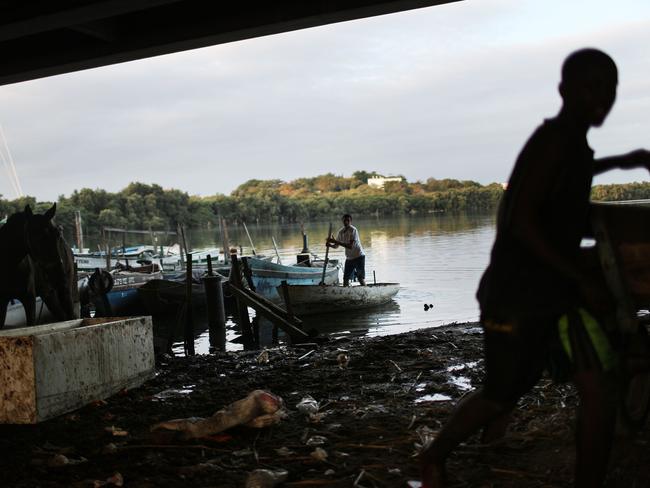
SAFETY CONCERNS
Rio organisers have been plagued by a series of concerns, not least of all pollution, with crime and safety of athletes and visitors also coming under the spotlight.
Yesterday Today show reporter Christine Ahern revealed how she and her cameraman were approached by would-be thieves just an hour after arriving in Rio.
Ahern and her cameraman were almost mugged by a group of “transvestites” near Copacabana Beach but were saved after a quick-thinking security guard intervened.
The reporter told 3AW the city definitely had an edgy feel to it and tourists needed to have their wits about them.
I beefed up my security for Rio 💪😃 @ Rio de Janeiro, Brazil https://t.co/d3Gsi2EnXP
— Christine Ahern (@ChristineAhern) July 27, 2016
Then earlier this week New Zealand Jiu-Jitsu competitor Jason Lee said he was kidnapped by men in police uniform who forced him to withdraw cash from ATMs.
Lee, who has been living in Rio for the past 10 months, was later released by the group revealing how sad it was locals and tourists had to put up with this “bull****” daily.
